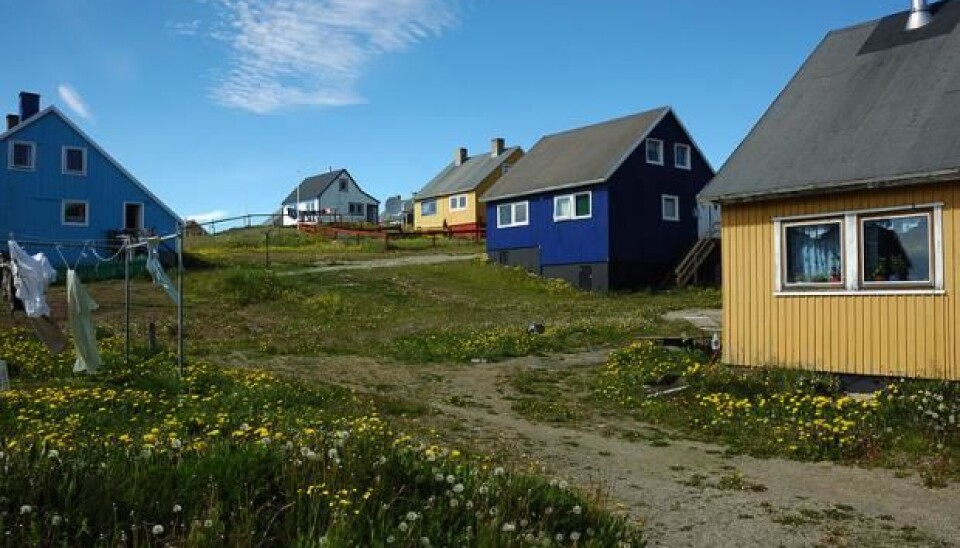
Greenland is divided over uranium mining
GREENLAND: The question of mining activities has divided Greenlanders into two camps, and the desire for a referendum on the subject is increasing, say researchers.
Should Greenland push forward with mining? It is a simple question that has divided the nation.
Resistance to the industry is growing among the urbanites of the capital city, Nuuk, and larger settlements, while support for the industry remains high among rural populations, says Associate Professor Lill Bjørst, from the Department of Culture and Global Studies, Aalborg University, Denmark.
"The issue of mining has divided the population a lot,” says Bjørst, who has followed the debate on uranium-mining in Greenland for several years. “The opponents are still in the minority, but [..] it’s growing; particularly in Nuuk, where the elite live. It’s suddenly become very fragmented and the country is on the way to being split in two [on the topic]."
Australian company reignites the debate
The debate about mining radioactive uranium is not new. It has been raging both in Greenland and in Denmark ever since the large uranium deposits were first discovered in Kvanefjeldet, near Narsaq, southern Greenland, in 1956.
Back then, the uranium was too low grade to be considered commercially viable, but there is now renewed interest in the area from the Australian mining company, Greenland Minerals and Energy Ltd, who are going to seek permission to construct a mine in the area to extract other rare earth elements. The minerals of interest cannot be extracted without also mining for uranium, and so the debate is once again in the public eye.
At the centre, is whether Greenland should pursue mining or focus it’s attention on other sectors. Some question the damage mining could do to Greenland’s reputation as a fishing nation with fantastic scenery, while others believe that it is worth the risk if it pays off in job creation, which is so desperately needed.
Many seek a referendum
It is not only uranium that is stirring dissatisfaction among Greenlanders, says Bjørst. They are also unhappy with the democratic process.
"A lot of people would like a referendum on the mining and export of uranium. There are regular demonstrations every time it comes up on the agenda, such as when The Greenland Parliament opened in early April," she says.
But despite several politicians promising a referendum over the years, the likelihood of it ever taking place is low, says Bjørst. This was confirmed by the current ruling party, Siumut, who have stated that they have no plans to announce a referendum on the subject.
Greenlanders do not know enough about uranium
The democratic problems also stem from a lack of public awareness about the pros and cons of a uranium mining industry in Greenland.
Bjørst has questioned many Greenlanders on the topic and discovered that many of them do not know enough about the impacts of such a venture.
"My studies show that many people have doubts about the impacts that the mine would have on their own lives and the town of Narsaq in the future," she says.
This is now being tackled by newly established environmental NGOs and initiatives such as ‘the uranium panel’--a new internet based information portal launched by one of Greenland’s largest newspapers, Sermitsiaq. Here a panel of environmentalists, geologists, social scientists, business leaders, and workers, contribute and answer questions relating to the mine.
Panel member, geologist Morten Birch Larsen from the Greenland Institute of Natural Resources, hopes the initiative will help people to reach more informed decisions.
"People have a lot of concerns and questions, which they share with us,” says Larsen. Among their concerns are the impacts from mine tailings (waste), dust, fluorine, and the impacts to the sheep industry and fisheries in the region. One worried person even asked whether his sheep would turn blue if they ate radioactive grass.
Bjørst welcomes the initiative, but is concerned that local politicians and the government are still not communicating these issues to the public. The responsibility should not fall entirely on the shoulders of academics and the media, she says.
"They [politicians] have to come up with a more impartial contribution to the debate and remember that it is primarily the locals, not the company, that they should plan for,” says Bjørst.
-------------
Read the Danish version of this article on Videnskab.dk
Translated by: Catherine Jex




